Fleet of the future: How Kitsap Transit is lowering its carbon footprint
For most households with cars, you have two flavors at the corner gas station – gasoline or diesel. But the options are growing as regulators push fleets to diversify their fuel mix, and Kitsap Transit is among many transit agencies in Washington state exploring the possibilities.
Every other week, trucks filled with R99 – the renewable diesel fuel that is dramatically lowering our fleet’s CO2 emissions – pull up alongside Kitsap Transit’s fuel tanks at our North Viking Transit Center in Poulsbo.
At our Charleston Base in Bremerton, contractors are installing new charging stations to power our expanding fleet of battery-electric buses. Later this summer, we’ll receive two dozen new cutaway coaches for our ACCESS service that run on an ultra-low nitrogen oxide (NOx) autogas, a significantly cleaner form of propane gas.
Under Washington’s Climate Commitment Act, transit agencies are required to cut their carbon emissions (based on 2015 levels) by 45% by 2030, 70% by 2040, and 95% by 2050.
With the addition of the new ultra-low NOx buses, R99 diesel and battery-electric coaches, Kitsap Transit will effectively reduce our emissions from 59,580 metric tons in 2015 to 10,814 metric tons by 2024 – a full six years ahead of the state-mandated deadline.
“With big changes on the regulatory horizon, Kitsap Transit is working with its partners to decarbonize our fleet and support a cleaner, greener future,” said John Clauson, Kitsap Transit’s Executive Director.
The renewable diesel powering Kitsap Transit’s fleet
R99 is a renewable diesel fuel that’s gaining popularity in Europe and several places around the United States. It’s made from refining biomass (like oils from vegetables, algae, fats or greases) into a fuel that is chemically similar to petroleum diesel. The result is a diesel fuel that is more efficient, burns cleaner, is kinder to engine systems and produces drastically less carbon dioxide than traditional diesel.
“I said, ‘This sounds way too good to be true, we need to take a crack at this thing,’” said Dan Sirotzski, Kitsap Transit’s Environmental and Sustainability Management System coordinator.
Sirotzki oversees our Environmental and Sustainability Management System (ESMS) program, a slate of policies and procedures aimed at reducing Kitsap Transit’s environmental impacts. He attended an industry conference at which a Seattle construction company discussed their use of renewable diesel. The experience inspired Sirotzki to research R99 further, culminating in our first batch of R99 being delivered on Jan. 9, 2023.
Kitsap Transit purchases R99 for our fleet from Neste, a Finnish company that uses algae oils to make its renewable diesel. The fuel is 100% “drop and go,” meaning it can be made in existing refineries and be used in regular diesel engines without special modifications.
In addition to producing less carbon dioxide, R99 has been shown to improve the life of fuel filters, reduce wear and tear on the engine and improve fuel efficiency. R99 is used in about 43% of Kitsap Transit buses – using exclusively renewable diesel for our entire bus fleet would reduce Kitsap Transit’s emissions by 96% against 2015 levels.
“The implementation of this fuel will allow us to achieve our emissions goals ahead of schedule and let us focus on new technology,” Sirotzki said.
Zero-Emission Battery-Electric Buses
R99 is just one way Kitsap Transit is moving towards our goal of being carbon-neutral by 2050. Last week, we took delivery of two more battery-electric buses, with more on the way.
By the end of 2024, we hope to have 30 battery-electric buses in operation between our Routed and Worker/Driver services. These buses will be supported by charging stations at Charleston Base and North Base.
In Silverdale, work continues on a brand-new transit center, which will feature an in-ground inductive charging system. Once complete, electric buses will be able to recharge while passengers board and deboard at the transit center, extending the effective range of our coaches.
We’re also designing our future facilities to include inductive charging, including a transit center in Port Orchard and park & rides on Day Road and Sedgwick and Sidney Road.
Hydrogen Fuel Cells
While electric buses are an important piece of reducing our emissions in the short term, we’re also exploring an even cleaner method of transportation: hydrogen fuel cell technology. Hydrogen fuel cells create electricity by combining hydrogen and oxygen through an electrolyte membrane. The resulting energy powers the vehicle and produces only water as an emission.
On Feb. 21, Kitsap Transit’s Board of Commissioners approved a resolution that will allow us to pursue federal and state grant funding for a hydrogen fuel-cell production facility at the West Bremerton Transit Center.
Not only would this facility allow us to produce hydrogen for a future fleet of hydrogen fuel cell buses, but any surplus could be sold to the community.
Energy Summit March 30
Kitsap Transit is convening a group of stakeholders – including the City of Bremerton and Puget Sound Energy – for a discussion about the future of the electrical grid and how Kitsap County agencies can come together to prepare for the future.
“We hope the Energy Summit gives the community the opportunity to understand the scale and speed of the change that’s necessary to harness the full potential of renewable fuels and create a strong grid that can supply clean, sustainable power for decades,” Clauson said.
You can tune in to the summit virtually on Thursday, March 30, at 4:30 PM. We’ll post more details on the blog when they become available.





